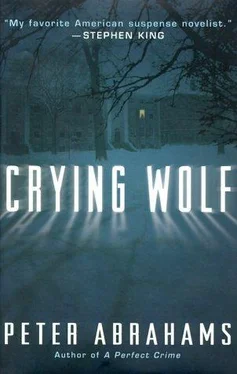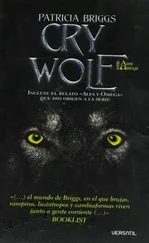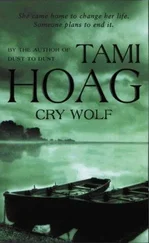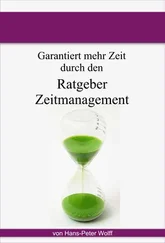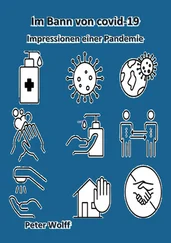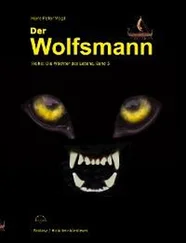Peter Abrahams - Crying Wolf
Здесь есть возможность читать онлайн «Peter Abrahams - Crying Wolf» весь текст электронной книги совершенно бесплатно (целиком полную версию без сокращений). В некоторых случаях можно слушать аудио, скачать через торрент в формате fb2 и присутствует краткое содержание. Жанр: Триллер, на английском языке. Описание произведения, (предисловие) а так же отзывы посетителей доступны на портале библиотеки ЛибКат.
- Название:Crying Wolf
- Автор:
- Жанр:
- Год:неизвестен
- ISBN:нет данных
- Рейтинг книги:3 / 5. Голосов: 1
-
Избранное:Добавить в избранное
- Отзывы:
-
Ваша оценка:
- 60
- 1
- 2
- 3
- 4
- 5
Crying Wolf: краткое содержание, описание и аннотация
Предлагаем к чтению аннотацию, описание, краткое содержание или предисловие (зависит от того, что написал сам автор книги «Crying Wolf»). Если вы не нашли необходимую информацию о книге — напишите в комментариях, мы постараемся отыскать её.
Crying Wolf — читать онлайн бесплатно полную книгу (весь текст) целиком
Ниже представлен текст книги, разбитый по страницам. Система сохранения места последней прочитанной страницы, позволяет с удобством читать онлайн бесплатно книгу «Crying Wolf», без необходимости каждый раз заново искать на чём Вы остановились. Поставьте закладку, и сможете в любой момент перейти на страницу, на которой закончили чтение.
Интервал:
Закладка:
“What’s funny? I can pay.” But not right away-it would probably have to be in installments drawn from coming Alumni Office checks; should he also start looking for a second job, down in the town? How he wished he could just whip out his wallet and hand over whatever the amount was on the spot.
“It’s not that,” Grace said. “Don’t be so touchy.”
“Then what’s funny?”
“I just don’t want this to degenerate into farce, that’s all.”
“What are you talking about?”
“Farce. The maid under the bed, someone else in the closet, British accents, you getting stuck with the bill.”
“I don’t understand.”
“Do I have to spell it out?”
Izzie shook her head at Grace, almost imperceptibly, but Nat caught it from the corner of his eye.
“What the hell’s going on?”
“Nothing,” Grace said. “Look what I found.” She set the photograph down on the table. Nat took it in at a glance: Professor Uzig when he was young, not much older than they were. Took in that, and the resemblance to the bust of Nietzsche-not the features, Uzig’s being much sharper-but the similar thinking poses, and the fact that the professor when young had worn a mustache much like Nietzsche’s. He stood in front of that place at the bottom of the hill, the Glass Onion, its sign unfaded.
Nat waved his hand in the air, waving away distraction. He clipped the edge of the frame by accident, knocking the photograph over. “Spell it out, whatever it is.”
“No, Grace,” said Izzie.
“Why not?” said Grace. “He’ll feel better in the end.”
“Say it,” said Nat.
Grace said it: “You may not be-you may not have been-the father.”
Nat felt sick, didn’t want to hear another word.
“Something about too much to drink, homecoming weekend at Pismo State or whatever it is, a football player. She wasn’t really too clear. But the kind of thing that goes on here every weekend. A moment of weakness, in this case followed by another-coming here. Her words, not mine. Call her if you don’t believe me.”
“You think I’d do that?”
“I apologize,” Grace said, laying her hand briefly on his. Her fingers were icy; it was cold in Professor Uzig’s library, snow blowing by the leaded windows. Nat sat down, resisted the impulse to put his hands over his face.
“What did that accomplish?” Izzie said.
Grace turned to her, eyes narrowing. Before she could reply, Professor Uzig stuck his head in the room and said, “Dinner, young people.”
“Ah, dessert,” said Professor Uzig when the cake appeared. “The course America likes best.”
“Where are you from, anyway?” said Ferg; he’d built a little palisade of empty beer bottles around his place setting. Everyone else, except for the domestic-violence girl and Nat, was drinking wine.
“Brooklyn,” said Professor Uzig. “Your native soil as well, if I recall.”
Ferg’s mouth opened but no words came.
A startling revelation: Nat had expected some answer like Prague, Munich, Trieste. Startling and with a lesson that applied to him, cut through his misery about Patti, not making it go away, but showing why it must: he was in the right place, doing the right thing. And therefore while he might return to his hometown, would for sure, he would never live there again. As for Patti, who wasn’t in this place: as for Patti-but he hadn’t completed that thought before Izzie, sitting across the table, caught his eye. She smiled, a hesitant smile, as though asking if he was okay; at least, that was his interpretation. He smiled back and started pouring himself a glass of wine. Why not, after all? Then he remembered: He’ll feel better in the end. Feeling better so soon? He stopped pouring, the glass half full.
“With the question of origins out of the way,” said Professor Uzig, rubbing his hands together-white hands, long and hairless, the fingernails gleaming as though coated with some colorless polish-“who wants to play the future game?”
No one said they didn’t. Professor Uzig passed out three-by-five file cards. “Simply write in a sentence or less what you imagine you’ll be doing in twenty years.”
Everyone wrote. Professor Uzig collected the cards, read them silently to himself, his face expressionless. “First card,” he said: “Inner-city doctor.”
That was easy-the domestic-violence girl.
“Record producer.”
Ferg.
“Dead.”
“Not funny, Grace,” said Izzie.
“A writer.”
A writer. Everyone guessed the smart girl from English 103, promoted by the English department beyond Nat and Izzie’s 104 to some sophomore-level course.
“I confess,” said the smart girl.
The funny thing, known only to Nat, was that writer had been his thought too, but, not wanting to jinx it, he’d written teacher instead.
“Teacher,” said Professor Uzig, looking around the table. His expression changed abruptly; he went still. Everyone followed his gaze. A woman had appeared between the open French doors to the dining room, an old woman with a ring of white hair. She wore a quilted white housecoat, a white tissue sticking out of one sleeve, and white slippers.
“I thought the department meeting was next week, Leo,” she said; an old person’s voice, all the bottom sounds missing.
The note cards slipped from Professor’s Uzig’s hand. “Correct,” he said. “This is Phil three twenty-two.”
“Phil three twenty-two?” she said. “That’s still going on?” She scanned the faces around the table. “What a bushy-tailed bunch, Leo. I’d forgotten how bushy-tailed these bunches can be. What’s the craze this year? Aboriginal rights? Prescription drugs? Ritual baths?”
Ferg laughed; a loud laugh, choked off almost at once.
The old woman advanced into the room. “What are we drinking?” she said.
“I understood you weren’t feeling too well,” said Professor Uzig.
“You understood right, Leo, as always. I feel like Marie Antoinette after the guillotine, like Cleopatra after the asp, like…” She couldn’t think what else. One of her eyes was tearing; she dabbed at it with the tissue, had trouble sticking it back in her sleeve.
A nurse entered, straightening her cap. “I’m so sorry,” she said. “I went to relieve my-I went to the rest room, and the next thing I knew Mrs. Uzig had…” She took the old woman’s elbow.
“Like Anne Boleyn after the… after…”
“Then why not go back to bed?” said Professor Uzig, his voice much gentler than Nat had ever heard it. He hadn’t imagined certain things about Professor Uzig, that he could have been born in Brooklyn, that he’d be caring for an aged mother.
“Come, dear,” said the nurse.
“Come, dear,” mimicked the old woman. “Why should I, when all the fun’s down here?” She picked up Nat’s glass. “How’s the wine?”
“I haven’t actually tried it yet,” said Nat.
“Proving youth is wasted on the young. Are you familiar with that expression?”
“I’ve heard it,” Nat said.
“A careful reply.” She took a sip. “Can’t taste a thing, of course. But I’m sure it’s good-I taught him everything he knows about wine, paying for it in the bargain.”
The nurse tugged a little harder at her elbow.
“You don’t mind sharing your wine, do you, young man?”
“No,” said Nat.
“What’s your name?”
Nat told her.
“Enchantee,” she said, extending her hand as though she expected him to kiss it. “I am Helen Uzig.” Nat shook her hand: skin like paper, green veins almost on the surface, pulsing light and fast against his fingers. “Enchantee,” she repeated, “accent aigu on the second e.”
“Please, dear,” said the nurse, pulling now.
Читать дальшеИнтервал:
Закладка:
Похожие книги на «Crying Wolf»
Представляем Вашему вниманию похожие книги на «Crying Wolf» списком для выбора. Мы отобрали схожую по названию и смыслу литературу в надежде предоставить читателям больше вариантов отыскать новые, интересные, ещё непрочитанные произведения.
Обсуждение, отзывы о книге «Crying Wolf» и просто собственные мнения читателей. Оставьте ваши комментарии, напишите, что Вы думаете о произведении, его смысле или главных героях. Укажите что конкретно понравилось, а что нет, и почему Вы так считаете.
